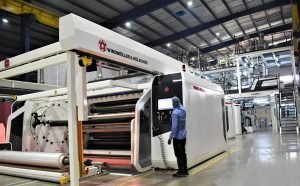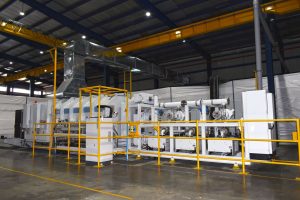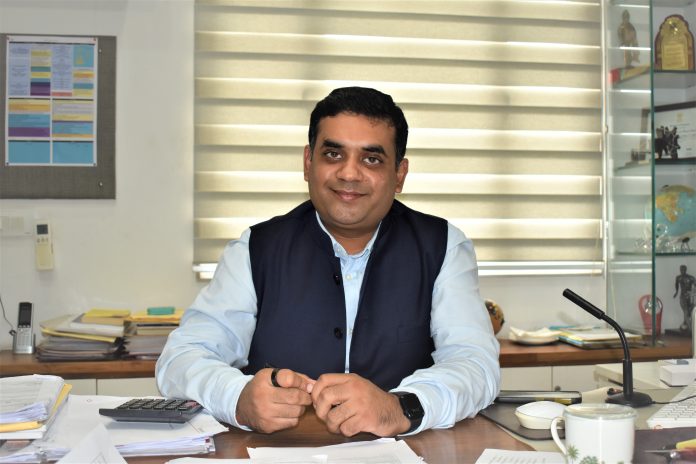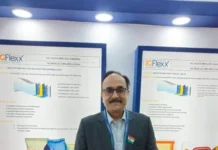Kanpur Plastipack, a public limited company quoted on the stock exchange, is a provider of industrial bulk packaging solutions. It has recently enhanced its capacity with the installation of W&H’s seven-layer Filmex II castline with metallizer and a Titan slitter rewinder from Applied Materials. The Kanpur-based converter offers high-density PE sack and flexible intermediate bulk containers (FIBCs), and also woven fabric, sulzer fabric, and multi-filament yarn (MFY).
The 53-year-old company exports packaging to nearly 65 countries, which amounts to almost 80% of the company’s total production. According to Shashank Agarwal, managing director, the company ventured from multi-layer packaging to single-layer in 2008. The company enhanced its extrusion capacity in 2009, and then diversifyied its production with cast polypropylene-based packaging (CPP) films in 2021.

Among the company’s diversifications is the manufacturing of UV masterbaches used for the protection of outdoor films and products against UV degradation and discoloration. KPL offers food-grade UV, non-food grade UV, and masterbatches with white TIO2.
Agarwal, also the president of the Indian Flexible Intermediate Bulk Container Association (IFIBCA), met us at Interpack 2023 in Dusseldorf, Germany. He told us that the Indian FIBC industry has come a long way since the formation of IFIBCA more than two decades ago. “Twenty years ago, India was producing about 10,000 metric tons a year of FIBCs. Today the production amounts to more than 400,000 tons. India is among the biggest players in the FIBC export market and the leading exporter to the US and European countries with a strong penetration in the German market.”
Good share for Indian FIBC exporters
Agarwal attributes India’s growing strength in the FIBC export market to multiple factors, including a focus on quality, excellent engineering capabilities, backward integration, and ethical business practices. According to him, these factors have contributed to the industry’s growth and reputation.

In a recent interaction, Agarwal said, “India holds a massive share in the US and European markets. Although the growth is consistent, it won’t be an easy task to expand further in these markets. Japan and South Korea are the two markets unexplored by the Indian FIBC manufacturers and thus expanding in these markets is the next step for us. We are working hard to expand our footprint there. Indian FIBCs are expected to replace the Chinese and Vietnamese in Japan and South Korea.”
According to him, the flexible packaging market that was surging during the pandemic has slowed down recently. “We all have seen so many geo-political issues happening globally — the Russia-Ukraine war, Gaza War, the Red Sea crisis, and to top it all, inflation is moving in a constant upward spiral. These factors have also resulted in slowing down of innovations as well,” Agarwal said.
The flexible packaging and UV masterbatch manufacturer has four production plants in India and a base of operations in Brazil. Agarwal suggests that the growth of the Indian packaging industry has huge potential and a knowledge or technology-intensive approach is the only way forward. “With the rise in Industry 4.0, technologies such as the Internet of Things, artificial intelligence, traceability, and authentication will be the differentiators,” he says.











